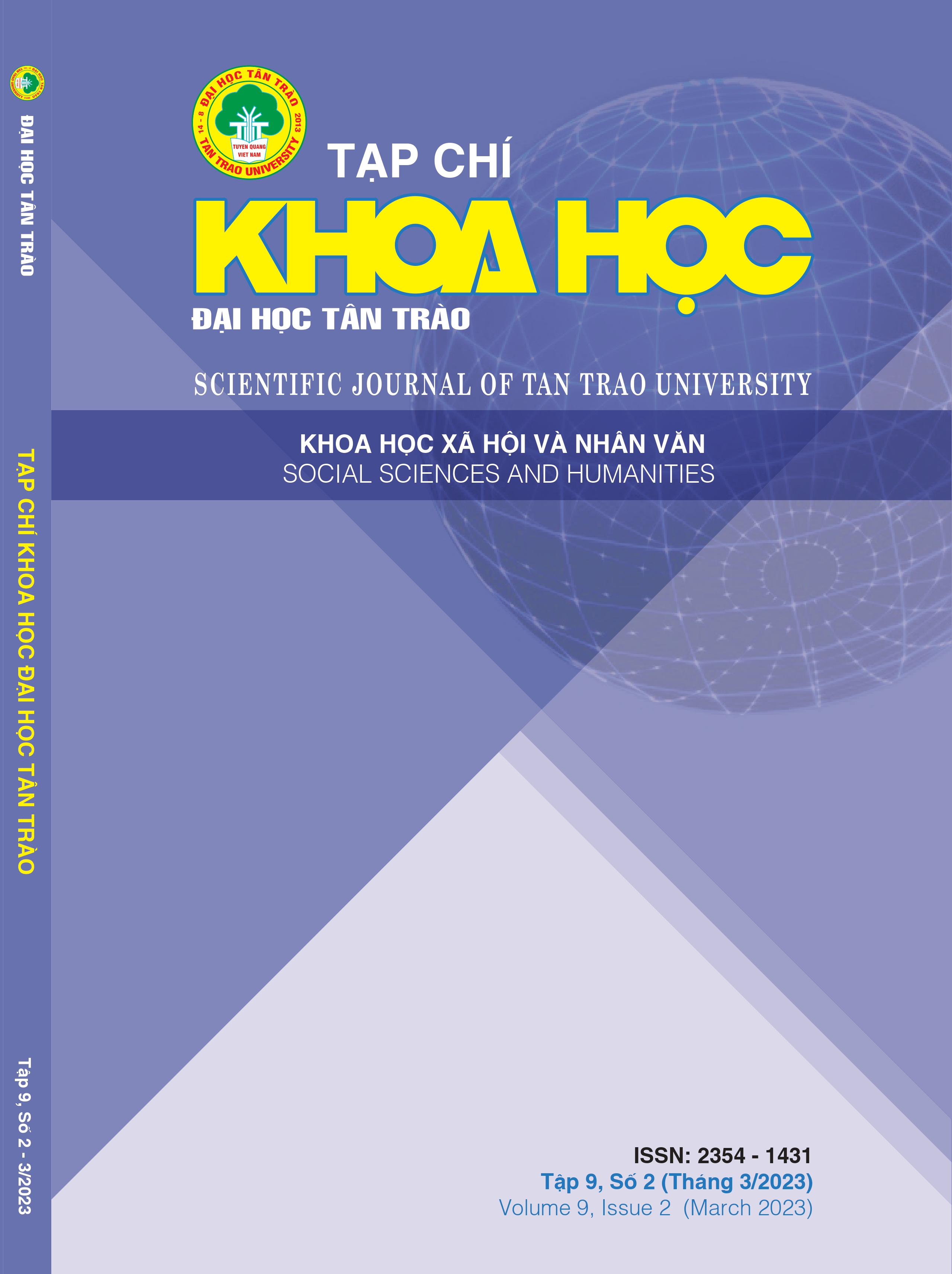LOCAL UNIVERSITIES IN THE TRAINING OF GENERAL EDUCATION TEACHERS MEET STEM EDUCATION REQUIREMENTS
DOI:
https://doi.org/10.51453/2354-1431/2023/930Keywords:
teacher training, STEM education, general education, local university.Abstract
One of the core contents of general education comprehensive renovation is renovating the educational program in the direction of reducing theory and increasing practice and experience. With strengths in practice and experience, STEM education plays a significant role in realizing this goal. However, to implement STEM education, general education teachers need to understand the nature of this method and have the necessary capacity. This poses a requirement for general education teacher training institutions in Vietnam, including local universities, with the mission of training human resources to serve local characteristics, to be one step ahead. Based on an overview of secondary data and actual investigation, the study provides an overview of STEM education and the requirements set to meet the ability to train STEM teachers, analyzes the current state of local universities and offer solutions to improve the general education teachers training to meet the requirements of STEM education.
Downloads
References
[1] Aldahmash, A.H.; N.M. Alamri & M.A. Aljallal (2019), “Saudi Arabian science and mathematics teachers’ attitudes toward integrating STEM in teaching before and after participating in a professional development program”, Cogent Education, 6(1), 1–21.
[2] Anh, Q.T. (2021), “STEM education program in Vietnam – current situation and solutions”, Journal of State Administration, 5/2021.
[3] Bien, N.V. & Hai, T.D. (2021), STEM education in general schools, Vietnam Education Publishing House.
[4] Deming, D.J. & K. Noray (2020), “Earnings dynamics, changing job skills, and STEM careers”, The Quarterly Journal of Economics, 135(4), 1965–2005.
[5] Hung, D.D. (2017), “The role of local universities in serving the local economy”, Tạp chí Giáo dục, 260 (2), 22-24.
[6] Huong, H.T.T. (2019), “Introducing the basic features of the STEM education model of some countries around the world”, Journal of Education, Special issue 10(2019), 325-328.
[7] Kayan-Fadlelmula, F.; A. Sellami, N. Abdelkader & S. Umer (2022), “A systematic review of STEM education research in the GCC countries: trends, gaps and barriers”, International Journal of STEM Education, 9 (2), 1-24.
[8] Lee, M.H.; C.S. Chai & H.Y. Hong (2019), “STEM education in Asia Pacifc: chal lenges and development”, Asia-Pacifc Education Researcher, 28(1), 1–4.
[9] Li, Y.; K. Wang, Y. Xiao & J.E. Froyd (2020), “Research and trends in STEM education: a systematic review of journal publications”, International Journal of STEM Education, 7 (11), 1-16.
[10] Ministry of Education and Training (2018), General education program, Circular No. 32/2018/TT-BGDDT, December 26, 2018.
[11] Nam, N.S.; D.N. Chinh & P.T.B. Loi (2019), “Some issues about STEM education in general schools to meet the new general education program”, Journal of Education, Special issue 9(2018), 25-29.
[12] Nga, H.T. (2016), “Some solutions to manage the teaching staff of local universities in Vietnam”, Journal of Education, 391(1), 21-25.
[13] Toan, D.T.T. (2018), “Some problems about forecasting human resource training needs in local universities”, Journal of Education, 434 (2), trang 35-39.
[14] Vi, N.H. (2016), “Difficulties encountered and challenges for the current system of community colleges and local universities”, VNU Science Journal: Educational Research, 32 (3), 43-49.
[15] Vuong, N.D. & N.H.D. Vien (2018), “Renovating the training of local universities in Vietnam in the context of globalization”, Open education system in the context of educational autonomy and international integration, 2, 85-91.
Downloads
Published
How to Cite
Issue
Section
License

This work is licensed under a Creative Commons Attribution-ShareAlike 4.0 International License.
All articles published in SJTTU are licensed under a Creative Commons Attribution-ShareAlike 4.0 International (CC BY-SA) license. This means anyone is free to copy, transform, or redistribute articles for any lawful purpose in any medium, provided they give appropriate attribution to the original author(s) and SJTTU, link to the license, indicate if changes were made, and redistribute any derivative work under the same license.
Copyright on articles is retained by the respective author(s), without restrictions. A non-exclusive license is granted to SJTTU to publish the article and identify itself as its original publisher, along with the commercial right to include the article in a hardcopy issue for sale to libraries and individuals.
Although the conditions of the CC BY-SA license don't apply to authors (as the copyright holder of your article, you have no restrictions on your rights), by submitting to SJTTU, authors recognize the rights of readers, and must grant any third party the right to use their article to the extent provided by the license.





